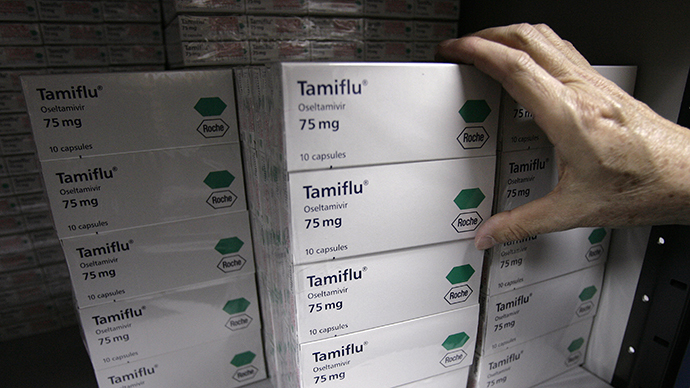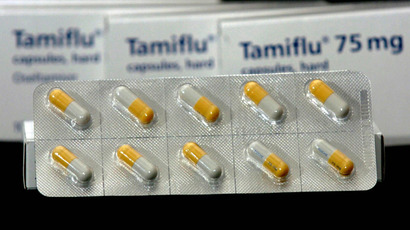UK wastes $900 mln on Tamiflu, other ineffective drugs on WHO recommendations

The British government wasted $896 million dollars on buying two ant-flu drugs, despite their not being proven to prevent infections spreading or stop serious illness, according to scientists who spent four years studying and analyzing the medications.
Parliament's influential Public Accounts Committee (PAC) said it was "surprised and concerned" to discover that information on methods and results of clinical trials of such prescribed drugs "is routinely withheld," and said there was a "lack of consensus over how well Tamiflu ... actually works."
The government spent $712 million stockpiling Tamiflu and $228 million on Relenza as a precaution in the event of a flu pandemic. The UK took steps to buy enormous quantities of the medicines following a recommendation by the World Health Organization (WHO) in light of the 2009 outbreak of swine flu, which led to 14 deaths in Northern Ireland. Almost $3 billion was spent on the drug worldwide at the height of the pandemic.
"The case for stockpiling antiviral medicines at the current level is based on judgment rather than on evidence of their effectiveness during an influenza pandemic," said Richard Bacon, a leading member of the committee.
However, a report in the British Medical Journal (BMJ) by Cochrane Collaboration, which is a group of independent scientists who investigate how effective medicines are, brings into question just how useful Tamiflu - also known as Oseltamivir - is. Despite the vast amount of money spent, the drug does not significantly reduce the amount of time needed to fight a bout of flu. Without the medication, the time is seven days, while those taking Tamiflu felt better in 6.3 days.
The journal mentions there are some worrying side-effects from those who use the medication to tackle flu. Tamiflu, produced by Swiss company Roche, can cause psychiatric and kidney problems, while it is also linked to increased risk of headaches and vomiting. Despite only fractionally reducing the time it takes to be cured and the costs involved in stockpiling the drug, the BMJ wonders why the medicine is included on the WHO list of essential drugs.
Tom Jefferson, a researcher for Cochrane Collaboration, independent scientists who investigate how effective medicines are, wrote a series of emails to the WHO in March 2013 asking that Oseltamivir be deleted from the list, saying in one letter, “is the WHO willing to keep a drug on the essential medicines list if its only benefit is symptom reduction, similar to what we might expect in a drug like aspirin”?
The WHO never responded to Jefferson’s request, for the drug’s removal from the list.













